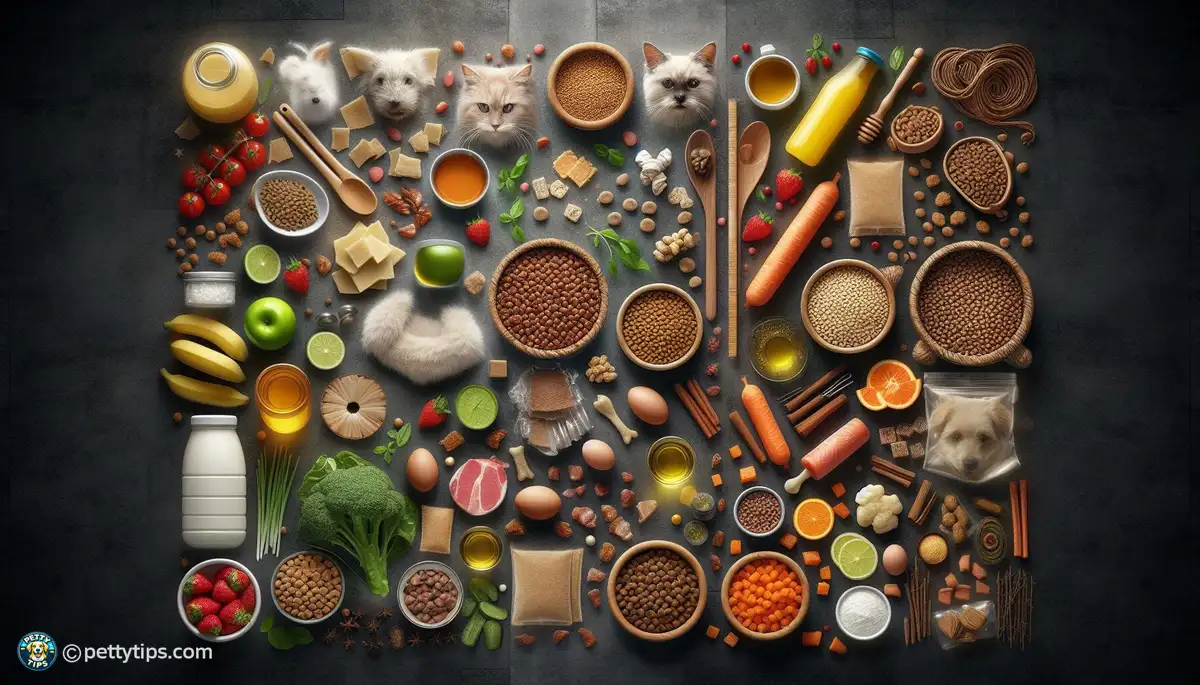
Understanding the Nutritional Needs of Dogs on a Raw Diet
Ouellet David - Sep 15, 2024 - 5 min read


When it comes to feeding our beloved pets, the choices seem endless. One of the most debated topics among pet owners is whether homemade or commercial pet food is better. To understand this debate, it's essential to grasp the basics of pet nutrition. Pets, like humans, require a balanced diet to thrive. This includes a combination of proteins, carbohydrates, fats, vitamins, and minerals. Meeting these nutritional needs is crucial for their overall health and well-being.
Homemade pet food has gained popularity in recent years, with many pet owners opting to prepare meals for their furry companions themselves. One of the significant advantages of homemade pet food is the ability to control the ingredients. This allows pet owners to tailor their pet's diet to meet their specific needs, such as addressing allergies or dietary restrictions. Additionally, homemade pet food may contain fewer additives and preservatives compared to commercial options. However, preparing homemade pet food requires time, effort, and knowledge of proper nutrition to ensure that pets receive all the essential nutrients they need.
On the other hand, commercial pet food offers convenience and accessibility to pet owners. With a wide range of options available in stores, finding the right food for your pet's needs is relatively straightforward. Commercial pet foods are formulated to meet the nutritional requirements of pets, making it easier for pet owners to ensure their furry friends receive a balanced diet. However, not all commercial pet foods are created equal. Some may contain fillers, by-products, and artificial ingredients that offer little nutritional value. Additionally, quality control issues have been reported in the pet food industry, raising concerns about the safety of certain products.
balanced nutrition is crucial for pets to maintain optimal health and prevent nutritional deficiencies or imbalances. A well-rounded diet should include a variety of protein sources, such as meat, fish, and poultry, to provide essential amino acids for muscle growth and repair. Carbohydrates from sources like grains and vegetables provide energy, while fats supply fatty acids necessary for skin and coat health. In addition to macronutrients, pets also require vitamins and minerals in the right proportions to support various bodily functions.
When preparing homemade pet food, it's essential to ensure that it meets all of your pet's nutritional requirements. This involves carefully selecting ingredients and proportions to provide the right balance of nutrients. Protein sources should be high-quality and easily digestible, while carbohydrates should come from whole grains and vegetables. Including a variety of fruits and vegetables can also provide essential vitamins and minerals. Supplements may be necessary to fill any nutritional gaps, particularly for homemade diets that may lack certain nutrients found in commercial pet foods.
When choosing a commercial pet food, reading and understanding the label is key to ensuring its nutritional adequacy. Look for products that list a high-quality protein source as the first ingredient, such as chicken, beef, or fish. Avoid foods that contain excessive fillers, artificial colors, and preservatives. Pay attention to the guaranteed analysis, which provides information on the levels of protein, fat, fiber, and moisture in the food. Additionally, consider the life stage and specific needs of your pet when selecting a commercial diet, as different formulas are available for puppies, adult dogs, seniors, and pets with special dietary requirements.
One of the primary concerns with homemade pet food is ensuring its safety and nutritional adequacy. Improperly prepared homemade diets can lead to nutritional deficiencies or foodborne illnesses in pets. To minimize risks, pet owners should follow recipes from reputable sources and consult with a veterinarian or veterinary nutritionist to formulate a balanced diet. Proper food handling and storage practices are also essential to prevent contamination and spoilage. Regular monitoring of your pet's health and regular veterinary check-ups can help detect any issues early on.
While commercial pet foods undergo rigorous testing and quality control measures, safety concerns still exist within the industry. Recalls due to contamination or mislabeling are not uncommon, highlighting the importance of staying informed about product recalls and alerts. To minimize risks, choose products from reputable brands with a history of safety and transparency. Look for foods that are manufactured in facilities that follow strict quality control protocols and meet industry standards for safety and nutrition. Additionally, storing pet food properly and checking for signs of spoilage can help ensure its safety and freshness.
Ultimately, the debate between homemade and commercial pet food boils down to striking a balance between nutrition, convenience, and safety. Both options have their advantages and drawbacks, and what works best for one pet may not be suitable for another. Whether you choose to feed your pet homemade or commercial food, the most important thing is to prioritize their health and well-being. By selecting high-quality ingredients, following proper preparation and storage practices, and monitoring your pet's health, you can provide them with a nutritious and balanced diet that supports their overall health and happiness.